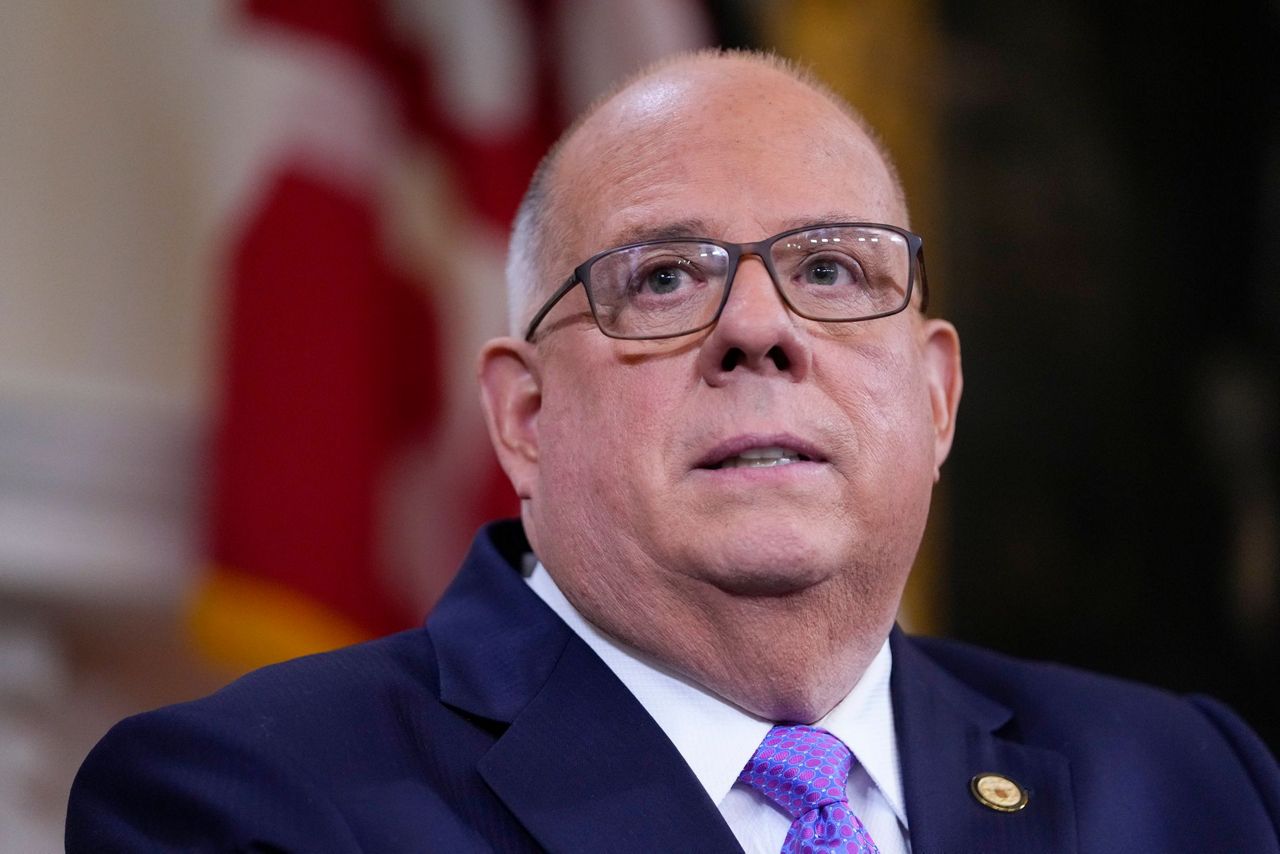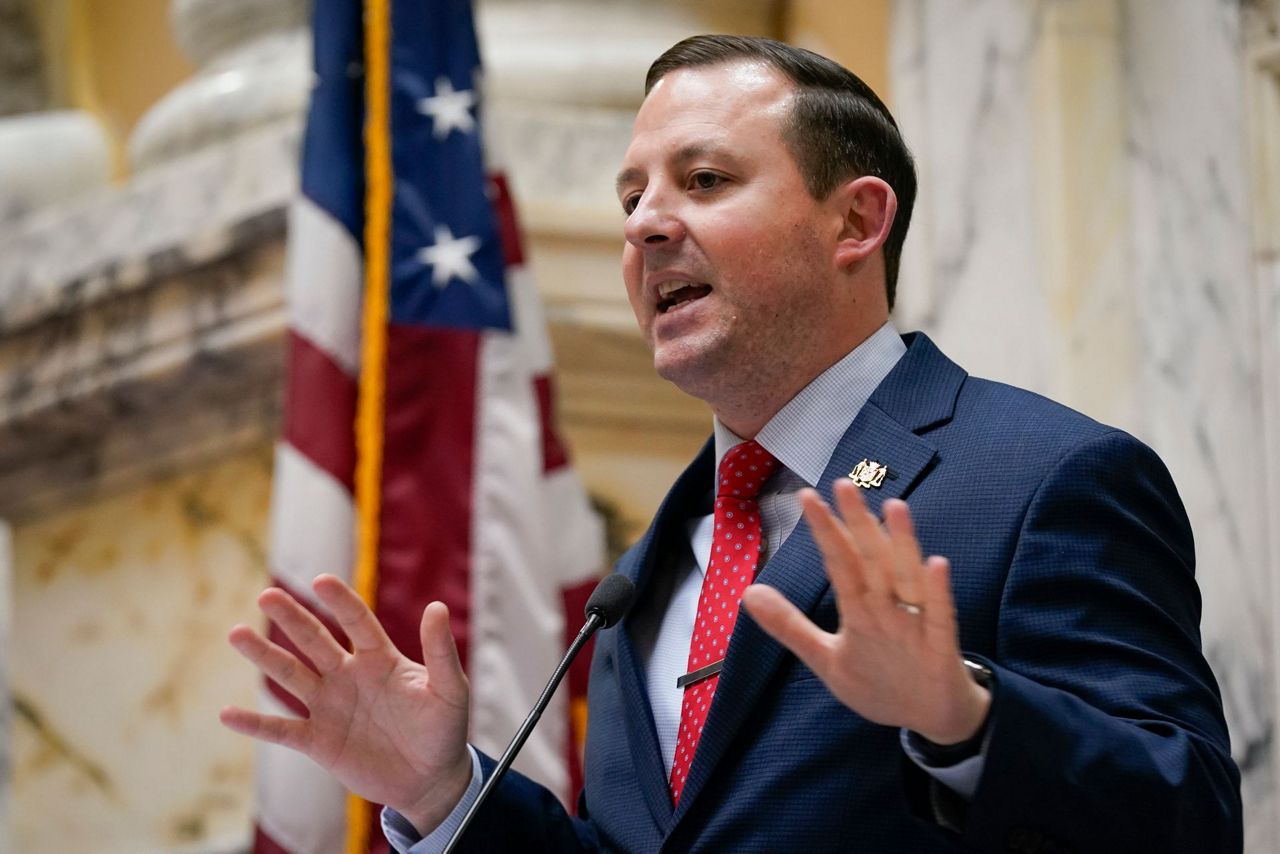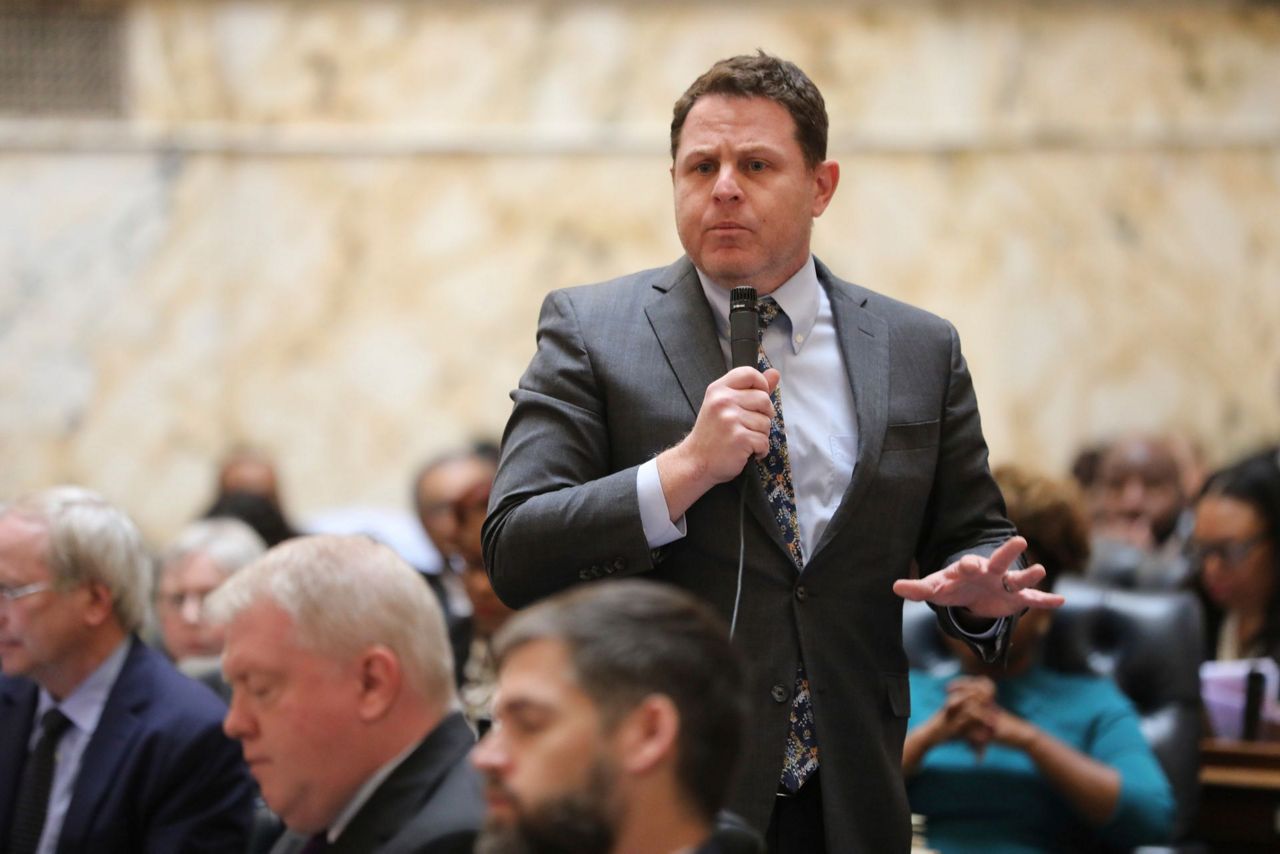ANNAPOLIS, Md. (AP) — A push in Maryland's legislature for hundreds of millions of dollars in taxes and fees has some Democrats concerned that the package may bolster former Republican Gov. Larry Hogan’s campaign for U.S. Senate and cost their party its already-narrow majority.
It's a worry that is being amplified by the need for federal support to rebuild Baltimore's collapsed Francis Scott Key Bridge.
While a Republican hasn’t won a Senate race in Maryland since 1980, Hogan is widely believed to be the GOP’s best chance in decades. Hogan's political ascendency resulted in large part from his criticism of tax increases that resonated with a tax-weary electorate in his upset victory in 2014.
“If you go back to 2014 and 2018, I think it’s not brain science to see what happened and how the former governor was successful in the state of Maryland, and so that context is very real, and we have to be honest about it,” Maryland Senate President Bill Ferguson, a Baltimore Democrat, said Tuesday in an interview with The Associated Press.
Hogan, who began building his popularity early in his first term by lowering tolls statewide in 2015, has been quick to condemn the revenue package that has led to a budget showdown between the chambers. On Wednesday, he noted the initial proposal in the Maryland House of Delegates was for $1.3 billion, which “would cost us jobs and hurt Maryland families already squeezed by historic inflation.”
“Enough is enough,” Hogan posted on X. “Let's reject these tax hikes and send a message that it's time to end politics-as-usual.”
Democrats hold a tenuous 51-49 majority in the U.S. Senate. And Hogan, who was originally elected governor by railing against tax increases endorsed by the General Assembly, has already made the Maryland race unusually competitive in the heavily Democratic state.
A Washington Post-University of Maryland poll late last month showed Hogan remains an overwhelmingly popular political figure in Maryland, underscoring his potential to turn a usually solid blue state into a competitive one for Republicans. But while his potential opponents remain relatively unknown, the poll also shows that Maryland voters remain much more likely to prefer a Democratic U.S. Senate.
Del. Ben Barnes, a Democrat who chairs the Maryland House Appropriations Committee, said the state’s transportation funding problems can’t wait a year, and he questions why the legislature with strong Democratic majorities in both chambers should wait.
“I’m not afraid of Larry Hogan,” Barnes said. “I don’t think any of us should be afraid of Larry Hogan. I think voters are going to vote in this U.S. Senate race based on national issues. I do think Marylanders expect us to solve this problem, particularly this transportation issue, largely created by Larry Hogan, and his neglect of the Transportation Trust Fund for eight years caused the shortfall.”
Nevertheless, some Democrats question whether now is the time for a package of tax and fee increases proposed by the state's House of Delegates to pay for transportation and K-12 education, when lawmakers could wait a year and defer potential political blowback.
“It is something that is a factor in the decision-making process for the next year,” Ferguson said. "The makeup of the U.S. Senate will matter for the long-term investment future for Maryland.”
With strong majorities in both the the state House and Senate, and a 2-1 advantage in statewide voter registration, Maryland Democrats typically don’t have to worry much about the GOP in the state capital. But Hogan is a rare Maryland Republican who has won two statewide races. That's something neither of his likely Democratic opponents, including U.S. Rep. David Trone and Prince George's County Executive Angela Alsobrooks, has done.
Gov. Wes Moore, a Democrat, submitted a balanced $63 billion budget for the next fiscal year in January without tax increases, and he has said raising taxes would face “a very, very high bar” this year.
The Maryland Senate this month largely kept his budget plan intact, despite a drop in revenue estimates announced after the governor submitted his plan. But the House has changed budget legislation to include new revenues, relying on a variety of transportation-related user fees and corporate tax reform for much of it. The Senate has been mostly unreceptive to the House plan, with Ferguson ruling out the corporate tax component. He's also ruled out legalizing internet gambling this year, another part of the House plan.
Senators negotiating with House members have expressed willingness to raise about $250 million in revenues, but the House negotiators have said that's not enough. With differences still unresolved and less than a week left in the session, Moore issued an executive order Monday night to extend the session by 10 days, if needed beyond Monday's scheduled adjournment at midnight.
In December, the state's transportation secretary proposed roughly $3.3 billion in cuts for Maryland's six-year transportation spending plan, as inflationary pressures add to the problem as well as the fact that traditional revenue sources haven't kept up with costs.
Ferguson said the budget plan approved in the Senate invests in the state's priorities without tax increases, with ample reserves still in the rainy day fund to avoid a hurried approach to revenues. He also noted that the bridge collapse has only underscored the need to keep a Democratic majority in the Senate.
“This is about the long-term future of the state, and that is the political reality that we have to operate within,” Ferguson said.
Copyright 2024 The Associated Press. All rights reserved. This material may not be published, broadcast, rewritten or redistributed without permission.





